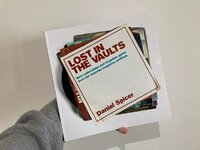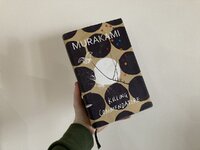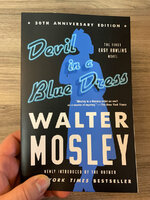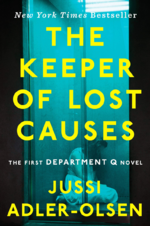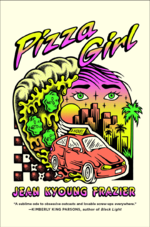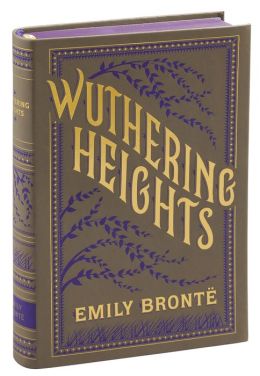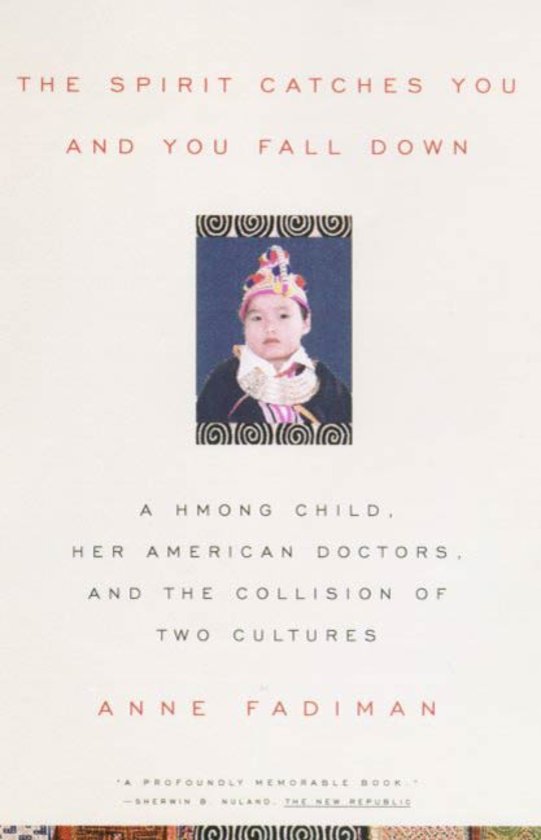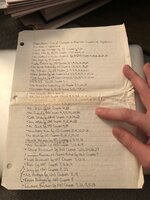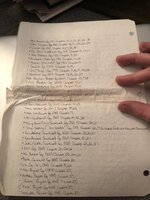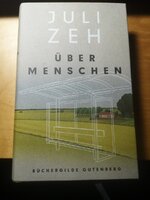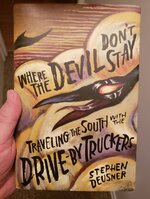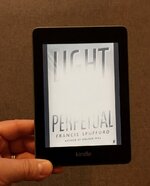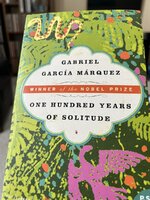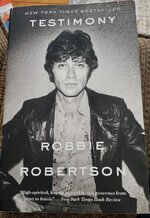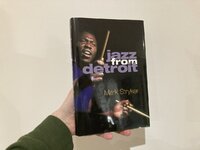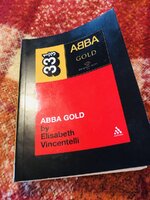You guys are a bunch of literary big brains who are apparently able to concentrate on actual ideas.
Me, I've just finished Book 7 of a paperback fantasy series about a king's private force of magical bodyguards. Dave Duncan was a middling but prolific author who wrote a series of books about the "King's Blades." The gist is that juvenile delinquent boys show up at this academy/fraternity that trains them to be the best swordsmen in the world. At the end of their education, the king visits, the boys swear an oath to him, and they perform a magic ritual that involves him taking their sword and running it through their heart (it heals immediately). This ritual turns them into enchanted guards who are attuned to their wards with enhanced instincts and abilities (for example, they don't need to sleep anymore), and will go to superhuman lengths to protect the person they're bound to. The king can also 'gift' Blades to private individuals.
There's a trilogy (sort of, it's hard to explain), followed by a YA trilogy that was collected in a single volume (and also is heavily dependent on the reader being familiar with the previous volumes, so I'm not sure why he went the YA route with them at all), then five standalone novels set in this world. After the 'rules' for how all of this works are established in the first book, all of the subsequent installments are about exceptions to the rules that put a twist on the reader's expectations. Lots of swashbuckling and traveling to distant lands for various reasons.
Anyway, it's paperback garbage and it's fun. I read the first book after stumbling across it in the library almost 25 years ago (remember what it was like to just go to the library and randomly pull books off the shelf to figure out what you wanted to read?? WILD), and am just now finishing the whole series for the first time, up to the last novel that was published posthumously in 2020. The first book, The Gilded Chain, can be read as a self-contained story, and it's by far the best one. After that there's a lot of strange left turns and narrative dead ends. They're loaded with interesting ideas, but again, Duncan was not the most sophisticated writer, so he often introduces an idea and then fails to explore it, or gets bogged down in flashbacks that are not completely relevant to the story. There is lots and lots of worldbuilding, sometimes at the expense of just moving the damn plot along. It feels like the kind of thing that could have been a successful anthology series for other writers to come in and spin off concepts or characters that Duncan introduced in the main series. This last stretch of books feels like it suffered from inferior editing as well (use of modern phrases like "you can't fight City Hall" that don't belong in this medieval setting, or introducing a stand-in for Tenochtitlan and literally calling it El Dorado).
Overall, it's by turns fun and frustrating. It's fascinating to think about how much time and effort he put into designing this entire world across 9 (or 11, depending on how you're counting) books and four different decades, only for a lot of it to go unexplored and just sort of evaporate into the ether.
It's, um. It's not Murakami.

